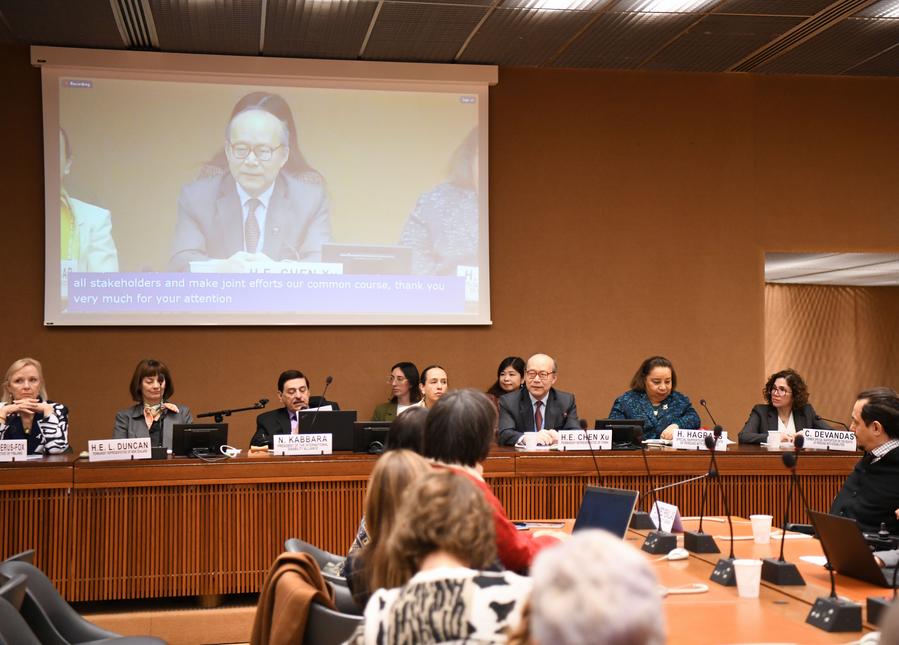Promoting Human Rights Through Development

China’s human rights practice focuses on the rights of subsistence and development.
China always regards rights to subsistence and development as primary and basic human rights. As a goal humanity has pursued for a long time, the Chinese people have worked tirelessly to protect human rights for all. Consistent with its rising global stature, the nation has moved from its traditionally more defensive posture to a more activist role in the field of global human rights protection, especially in the United Nations Human Rights Council.
Historically, one factor that may help explain this, as well as China’s extraordinary economic feats, but has been missing in most academic research is culture. The Chinese can be said to have the most pro-economic growth culture for political, economic and historical reasons. No wonder, since 1978, when China launched its epoch-making reform and opening-up drive, the people of various ethnic groups of China who had suffered oppression from invading foreign forces before the founding of the People’s Republic of China in 1949 have not only started to enjoy the benefits of economic and social development, but also see great advancements in the protection of their human rights, attained peacefully via their culture of hard work, unity and understanding.
Work culture
The central government has taken effective measures to sustain this culture of hard work and progress by developing the economy, protecting and promoting basic human rights, promoting ethnic unity and development, improving living standards and enabling the Chinese people to actively participate in global human rights governance. This path holds the key to China’s historic feats in human rights because it has brought happiness to the more than 1.4 billion people.
Going forward, the Chinese people intend to stay on this path because they have benefitted from this process. It was through this path the Chinese people ended absolute poverty that brought them a sense of self-actualisation, happiness and security; it was also through this path the people of various ethnic groups of China completed the building of a moderately prosperous society in all respects across the nation.
This same path is what China is offering to the world, which provides options for developing nations in their quest for modernisation. This is also China’s contribution to the exploration by humanity for a better social system. Guided by the Chinese government’s new development philosophy, under the principle that “The state shall respect and protect human rights,” China, through its path to modernisation, is not only pursuing high-quality development by fostering a new development paradigm that will help to promote common prosperity for all, but is also comprehensively advancing law-based governance and legal protection for human rights.

These are some of the reasons why the Chinese government has fully participated in the United Nations human rights affairs and earnestly fulfilled the nation’s worldwide human rights obligations.
Therefore, I feel that to punish nations like China for the management of their internal affairs by imposing sanctions under the pretext of human rights is counter-productive. This act is similar to colonialism because if you look at the colonisation of Africa, you can see that it started with similar pressure. Western nations like the UK and the US have started to display similar characteristics under the pretence of promoting human rights by putting pressure on China and other developing countries, while turning a blind eye to their own serious human rights violations such as racial discrimination and colonialism, and making baseless allegations against developing nations. But these actions are bound to fail because not only will they find no support but will end up going nowhere because most nations believe that dialogue and cooperation represent the right way forward rather than the unilateral coercive measures.
Common development
As a country that emphasises human rights in economic and development terms, China considers its role among its developing country partners more as the provider of development opportunities focusing on the means of development as opposed to the ends. China, which has fought its own battles to modernise, has a much greater sense of urgency for development in developing nations than several Western forces. It comes to Africa as an equal partner, without colonial intentions, human rights pressure, or interference in the internal affairs of African nations. As a result, Africans have a favourable opinion of China, because, while the Western investments and aid failed to lift Africans out of poverty, China’s way of doing business offers an alternative opportunity for Africans.
Since China’s economic support is giving Africans options they never had under a Western-led world order, it has also fostered common understanding between China and Africa on three main areas: non-interference in internal affairs, economic interests, and human rights.
Africa and other developing nations like Pakistan, on behalf of 72 nations, and Venezuela, on behalf of 19 members of the Group of Friends in Defense of the Charter of the United Nations, issued a joint statement to support China’s position on human rights in October 2023. Their firm position to promote and protect human rights via common understanding and based on dialogue and cooperation further shows that the international community firmly upholds multilateralism and solidarity and also responds jointly to global challenges.
Advancing human rights is the consistent pursuit of all Chinese. Under the leadership of the Communist Party of China coupled with the Chinese government’s realisation of the Two Centenary Goals and the Chinese Dream of rejuvenation, further improvement will be seen in the protection of human rights in China.
The author is Executive Director of Centre for Nigerian Studies, Institute of African Studies, Zhejiang Normal University.
 Facebook
Facebook
 Twitter
Twitter
 Linkedin
Linkedin
 Google +
Google +










